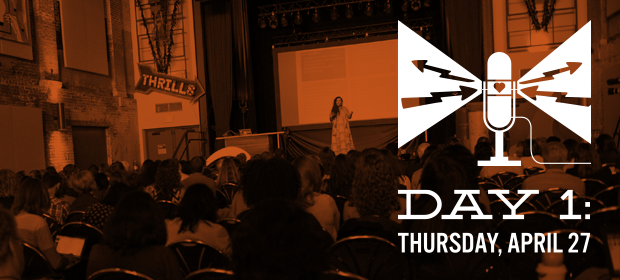Where We Work
See our interactive map



A big question on people’s minds today wasn’t “What are we doing for greater social good?” but “How can we keep doing it?”
Our world—you’ve probably noticed—is changing. Anxiety and uncertainty are all around us. And while there are more human beings today than ever before in history, somehow there’s more loneliness, too.
But nobody was lonely today at SwitchPoint 2017.
A sold-out crowd of over 300 humanitarians from across the globe all converged for day one of this annual conference in Saxapahaw, North Carolina, ready to talk about the latest—and often least-known—efforts toward greater social good around the world.
The question isn’t “How are we doing good?” It’s “How can we keep doing good.”
One big question was on everyone’s minds, particularly in the wake of this week’s budget proposals that could change international development as we know it. It wasn’t “How are we doing good?” but “How can we keep doing good?"
Humanitarian work is more important now than ever (see: war, famine, and our global refugee crisis). So how do humanitarians who know how to operate under today’s funding mechanisms and bureaucratic foofaraw adapt to the changes ahead?
Turns out they're already adapting. We saw glimpses of that on the main stage today.
“I believe that deep within all of us is a desire to do something great,” said Roya Mahboob. She was one of Afghanistan’s first female tech CEOs and today’s SwitchPoint keynote speaker.
For her, that thing has been educating thousands of women and girls in her home country and giving them life-changing access to technology and the internet.
“When I see a girl on the internet for the first time,” she said, “I can see the change in her face. Many of these women and girls live their entire lives dependent on the men in their lives. This is their first chance at financial independence.”
With digital literacy comes empowerment, Mahboob says—skills that can help them to build apps, start businesses, and connect to the wider world. So she works to bring that power to more women and girls through her nonprofit, the Digital Citizens Fund.
“Millions of girls are being left behind as the world moves forward, away from them,” she said. “It may seem like a big problem, but we start with one girl, one computer, one change at a time.”
The corporate giants agree.
“Even GE began as a startup 125 years ago with a light bulb,” said Asha Varghese of the GE Foundation. “The Sustainable Development Goals brought to light the conversation around public-private partnerships. It’s no longer about whether the private sector has a role to play in development—it’s about how. And regardless of whether we start small, the reality is that we have to start now.”
“J&J was a startup, too,” said Michael Bzdak of Johnson & Johnson. “We started in 1886 with antiseptic wound care—the Band-Aid was a new invention at the time. We began small, and now we’re big. And with big comes a huge responsibility.”
Varghese, Bzdak, and Pape Gaye of IntraHealth International spoke about what it takes in today’s changing world for nonprofits and corporations to work together to do good things. Companies no longer want to write checks through small corporate social responsibility departments, they concluded—corporations want to go all in, and bring the brain power of their entire organizations to the table.
SwitchPoint has always been a place to hear the stories behind humanitarianism around the world, but there was something new this year. Sprinkled throughout the program were the surprising—and haunting—firsthand accounts of frontline health workers.
We heard from an EMT with the Chicago Fire Department, a community health worker from Phoenix, Arizona, a physician in Tanzania—all of whom have gone through intensive training with storytelling coach Jeff Polish. The results of their training were stunning. I can’t begin to recount their stories here, and besides it would never do them justice. But please: check out the videos of their presentations when we release them later this spring.
SwitchPoint is a mish-mash of inspiring mainstage talks, intimate breakout sessions (or microlabs), and interludes of live music, modern dance, and even spoken word poetry. These interludes always come as a shock to those who’ve never SwitchPointed before—most of us are used to our conferences taking us from one straight-laced expert to the next.
But art humanizes us. And it plays a powerful role in humanitarianism today.
“Where I come from, in Senegal, no one is lonely,” said kora player Diali Cissokho in a pause between songs. “Ever since I moved to America, I am lonely every day. Because I don’t know this kind of life, where you have to be careful, where you have to not say hi to everyone, where before you go to someone’s house, you have to call or text. But this, today, all of us here together”—he held his arms out to the audience—“this is a beautiful thing.”
The storytelling training with Jeff Polish and the frontline health workers at SwitchPoint 2017 was funded by Medtronic Philanthropy.
Check out the full program for SwitchPoint 2017. And read SwitchPoint 2017: Day 2.
Get the latest updates from the blog and eNews




